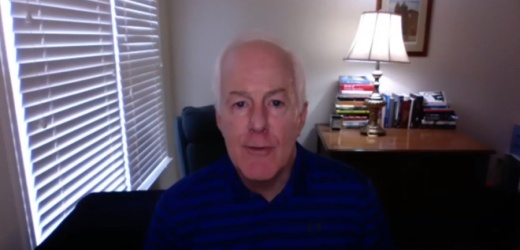Individuals with a reported gross income of up to $75,000, as well as head-of-household filers reporting up to $112,500, can expect a $1,200 deposit, according to the Internal Revenue Service. Those filing jointly reporting a maximum of $150,000 can expect $2,400, as well as $500 per qualifying child.
"The IRS is already working to get this money out the door using direct deposit where possible," Cornyn said. "[Treasury] Secretary [Steven] Mnuchin originally estimated direct deposits would start hitting bank accounts in Texas in mid-April."
These direct deposits come as part of the Coronavirus Aid, Relief, and Economic Security Act, a bill of historic bipartisan report, Cornyn said.
"We literally passed this first CARES Act with a unanimous vote in the Senate," he said. "I never would have imagined that—especially spending more than $2.2 trillion."
Meanwhile, the Texas Workforce Commission's phone lines have been inundated, but Cornyn said Texans can backdate their unemployment benefits.
"It's important to note that unemployment benefits can ... be retroactive," he said. "No Texan should be penalized for not being able to reach the Texas Workforce Commission for an application. You're eligible to receive benefits based on the date of unemployment."
Cornyn detailed how some of the elements of the CARES Act will be distributed to Texans. He said the bill's Payroll Protection Program and unemployment expansion aims to ensure small businesses will weather the financial fallout of the coronavirus pandemic.
"Hopefully the check that will be deposited in their bank account very soon, and the opportunity to apply for and receive unemployment benefits will help them cover their expenses until the smoke clears," he said. "When that finally happens, we want Tarrant County and Texas to be standing strong. And that means preserving as many of the businesses as we possibly can."
Cornyn also floated the idea that Congress review a possible infrastructure bill in the future, but underscored the importance of addressing the pandemic.
"There is some talk about an infrastructure bill," he said. "It's important, but it's not an emergency like this ... public health and financial crisis. So what I'd like to do is try to figure a way to prioritize what's an emergency first and then work our way through that."
Editor's note: Incorrect information stating the maximum stimulus check amount available has been removed from this article.





